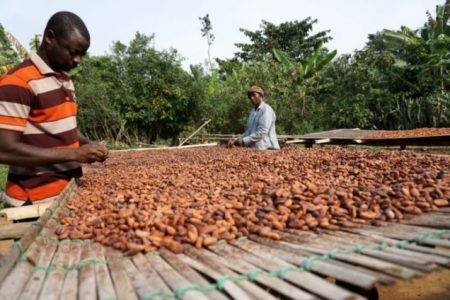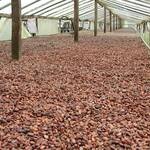COCOBOD is set to open the new cocoa season on September 10, 2024, with a self-financing plan, marking a shift away from the traditional syndicated loan model that has been in use for over three decades.
Chief Executive of COCOBOD, Joseph Boahen Aidoo, revealed that while the Board will primarily rely on self-financing, it may incorporate loan syndications if necessary during the transition.
He stated that the self-financing model had already been tested during the previous season, which ran from June to August, and proved effective.
“We are starting the season with self-financing,” he said, emphasizing the potential of combining the new system with the old one.
He added that the new approach would help reduce reliance on borrowing, creating more financial flexibility for COCOBOD.
The self-financing plan involves a significant change in how cocoa sales are managed.
Under the new system, payments from overseas buyers will go directly to COCOBOD, rather than being routed through lenders as was the case with the syndicated loan structure.
Mr Aidoo believes this shift will help stabilize the cedi by ensuring a steady inflow of foreign currency rather than large, infrequent payments, which often put pressure on the local currency.
In anticipation of the new season, COCOBOD has been engaging with farmers from seventy cocoa-growing districts to discuss the future of the sector, which has faced financial and environmental challenges.
Mr Aidoo assured farmers that the new system aims to improve their livelihoods, and hinted at an improved pricing regime for the upcoming season.
President Akufo-Addo is expected to announce new cocoa prices, with sources suggesting a potential 45% increase. Farmers, citing rising costs of production and the impact of illegal mining on cocoa farms, are advocating for a minimum price of GH₵6,000 per ton.
Mr Aidoo assured that the new pricing structure would be more favorable, providing a boost to the incomes of cocoa farmers.
- Prof Opoku-Agyemang seeks medical treatment abroad - 30 March 2025
- 3 missing in suspected pirate attack on fishing vessel - 29 March 2025
- MPs to blow GH₵41.2m monitoring GH₵55m projects - 29 March 2025

